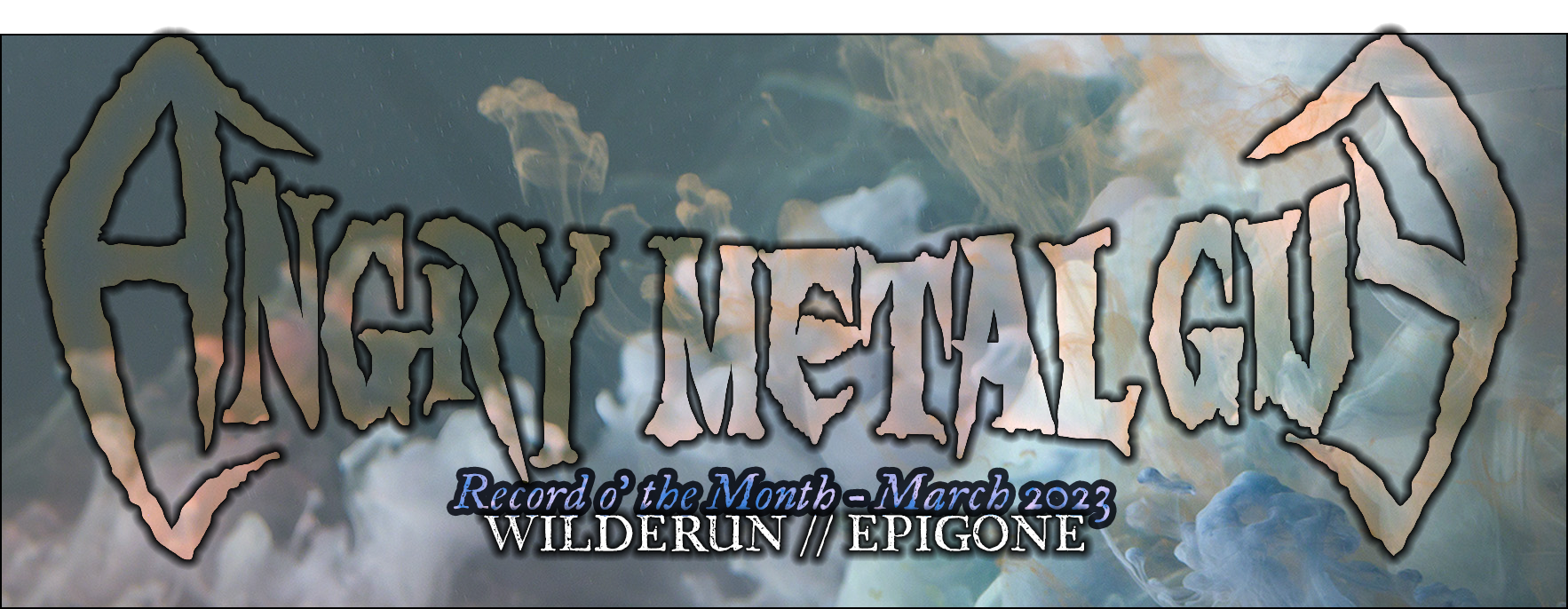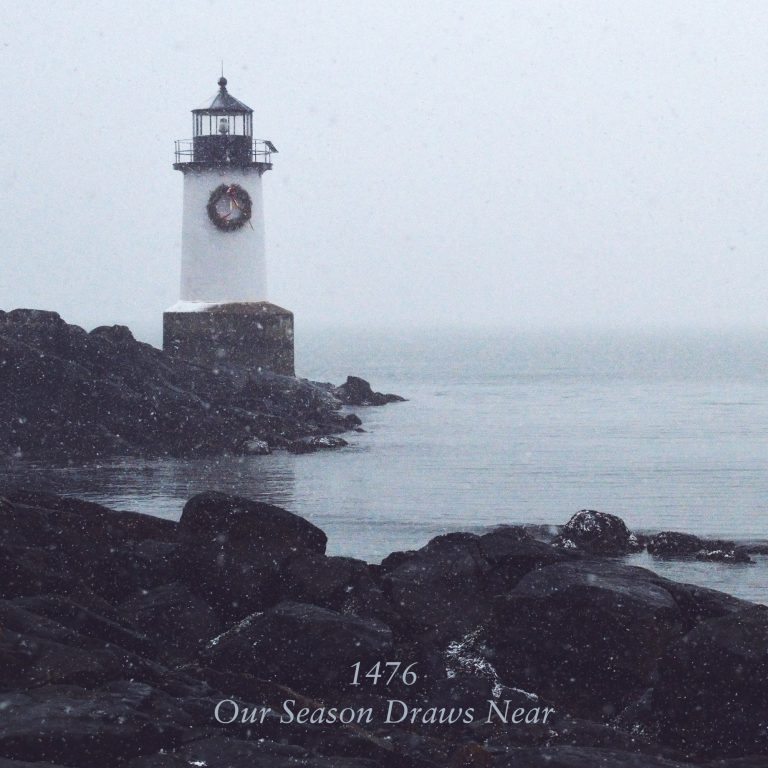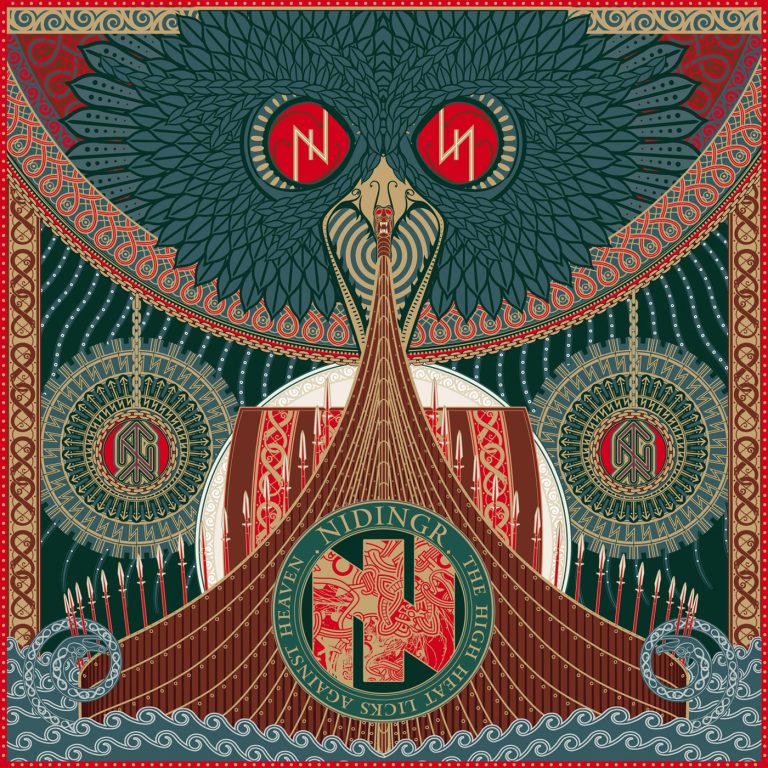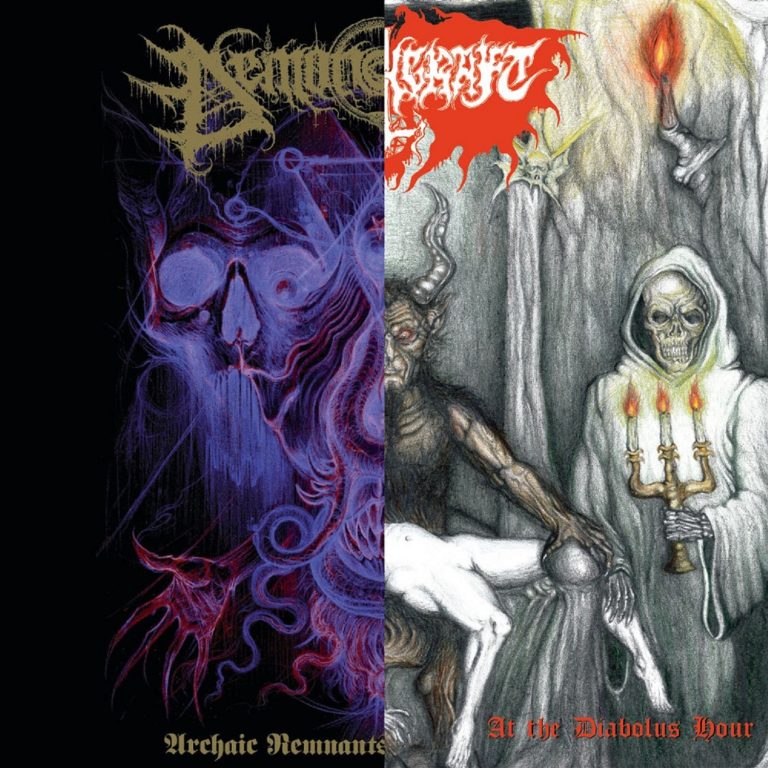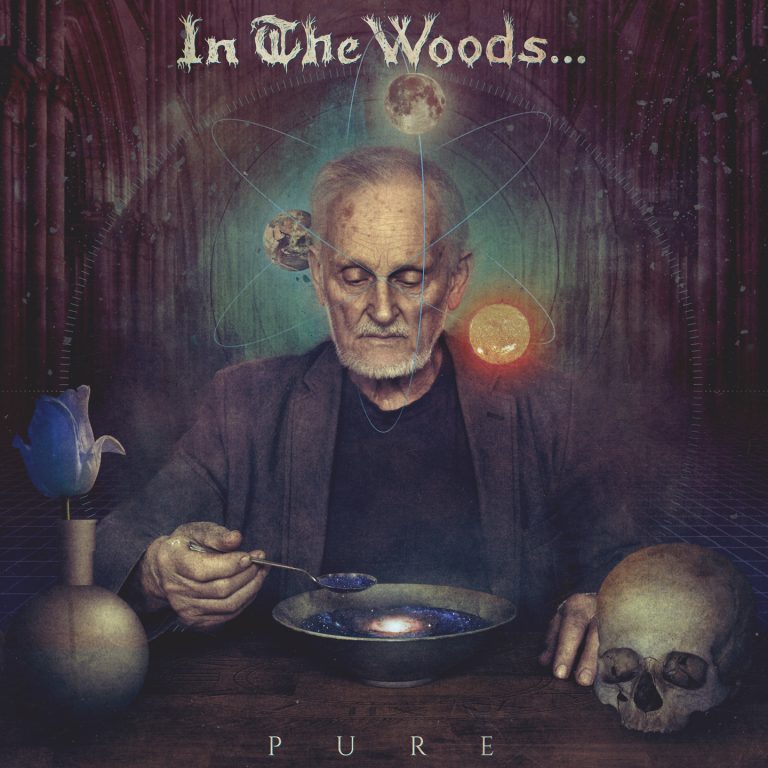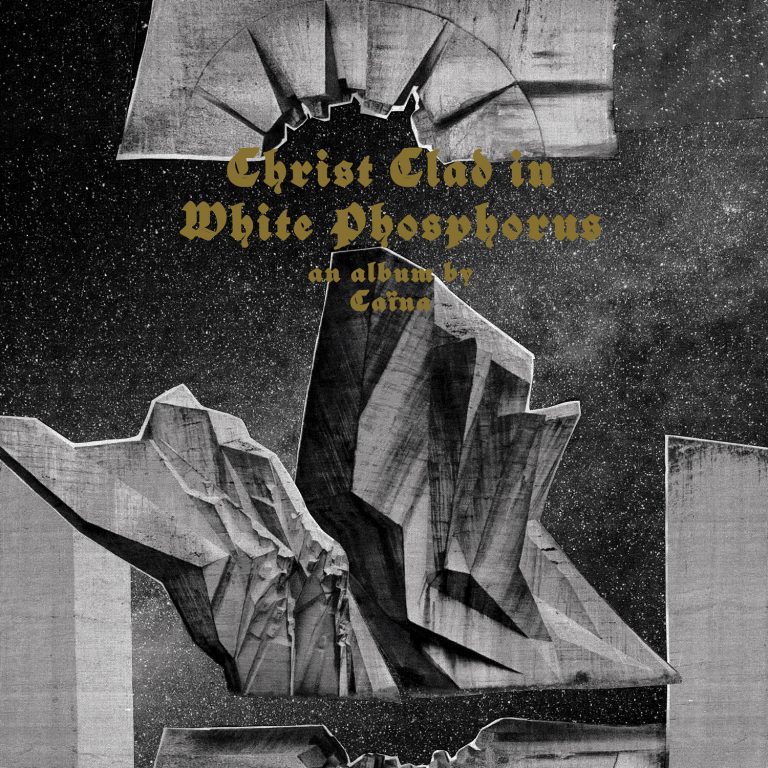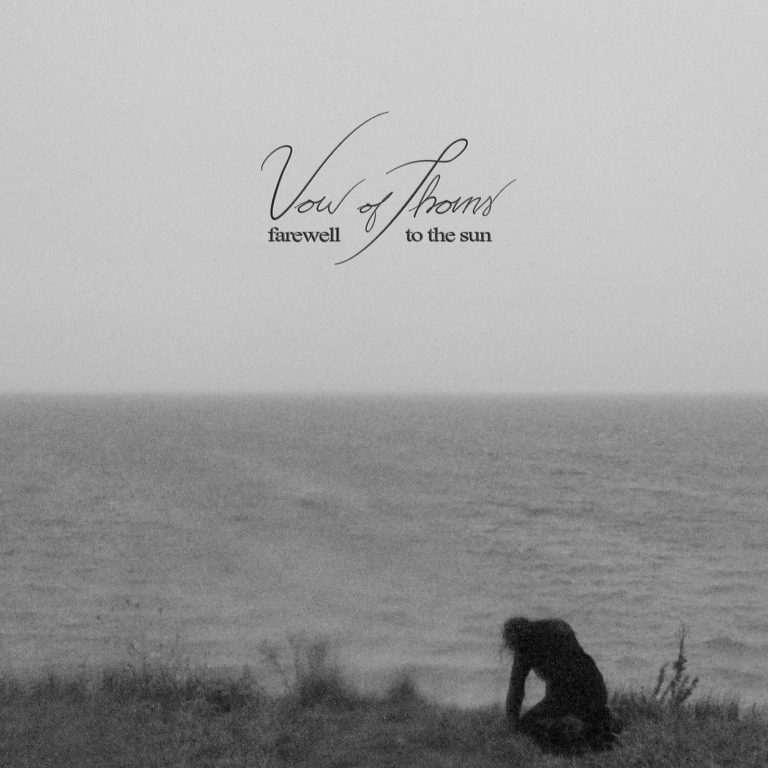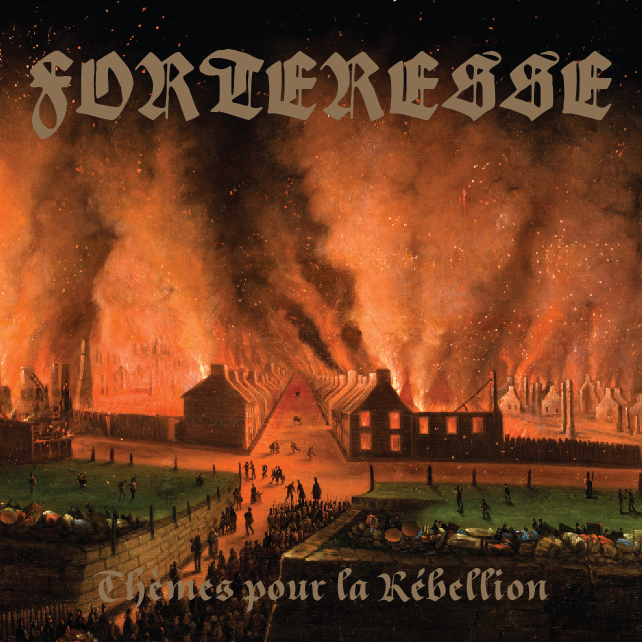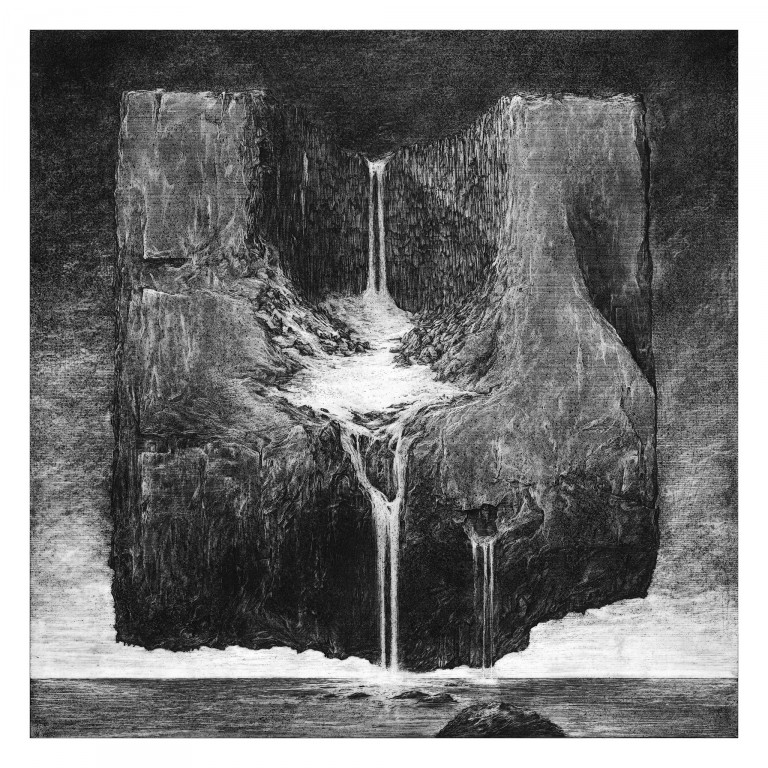“Known for its short summers and long, drawn out winters, New England is not the worst starting point for a winter-themed album. Fueled by isolation and frigid temperatures, 1476 hail from the infamous Salem, Massachusetts and their specialty is a mixture of art and stripped-down dark, atmospheric rock.” We didn’t land on 1476’s rock, it landed on us!
Ulver
Nidingr – The High Heat Licks Against Heaven Review
“Teloch is one busy dude. When he’s not busy touring with Myrkur or writing and playing guitar for Mayhem, the Norwegian guitarist juggles his seemingly-limitless time between NunFuckRitual, The Konsortium, and a handful of other bands. One of these bands happens to be Nidingr. It has been five long years since Greatest of Deceivers terrorized our eardrums, and the time is right for some fresh-out-of-the-oven blasphemy.” Hot upside-down cross buns for all!
Ricardo Remédio – Natureza Morta Review
“Follow me into the electronic church of Ricardo Remédio, a prolific musician who has collaborated with various doom bands and electronic projects in his native Portugal. Under the divine gaze of Sunn O))) and Ulver collaborator and multi-instrumentalist, Daniel O’Sullivan, Natureza Morta is Ricardo Remédio’s first solo record. The album is atypical in that it contains no riffs, vocals, drums or your everyday heavy metal violence.” And now for something completely different.
Demonomancy/Witchcraft – Archaic Remnants of the Numinous/At the Diabolus Hour Review
“Worry not my child for the balm to salve your festering wounds exists in the form of a split from Demonomancy and Witchcraft. Bestial, coarse and outright evil, this 26-minute payload of blackened death offers a brief respite for those needing an outlet for their rancor.” Now available at AMG – Rancor relief.
In the Woods… – Pure Review
“I have a strange relationship with In the Woods…. Back when I was first discovering underground metal and devouring all the obscure releases I could find in the Internet’s further reaches, I remember being taken aback one night by a mysterious 1995 debut called Heart of the Ages. Both the record’s hazy cover art and the esoteric black metal contained within conveyed a haunting, archaic timelessness that, oddly enough, was so powerful it actually discouraged me from returning to the album after my initial awestruck listens. The mystique was furthered by the fact that Woods broke up in 2000 – years before I ever heard of them.” Mystique and aura aren’t just friendly girls at the local gentlemen’s club.
Caïna – Christ Clad in White Phosphorus Review
“Dante Alighieri once said “The path to paradise begins in Hell.” Andy Curtis-Brignell and Laurence Taylor, the backbone of Caïna, hold these powerful words true and no album makes this more apparent than their new outing – Christ Clad in White Phosphorus.” If you’re going through Hell, keep going.
Vow of Thorns – Farewell to the Sun Review
“There is a hole in North American metal. The Great Cold Death of Agalloch was abrupt though not unwarranted given the air of similarity by the release of Marrow of the Spirit and the questionable success of the experimentation in The Serpent and the Sphere. It’s preferable to leave your audience wanting more than ultimately tiring them. But such was their influence that there are many bands, particularly from the Cascadian scene, which bear clear lines of affinity to them.” The mourning has not broken.
Forteresse – Thèmes pour la Rébellion Review
“I’m largely done with black metal as it was in Norway in 1993. That raw, lo-fi, stripped-back approach to black metal had its place and developed metal in so many ways but it’s definitely had its time. Bands such as Ulver, Emperor and Enslaved were already beginning to move the sound into unprecedented regions in the mid-late 90s. Now in 2016 it’s rare that I listen to that sort of no frills attached, no genre cross-over, nothing added to that furious, godless formula.” But there are always exceptions.
Zhrine – Unortheta Review
“Hailing from the Kópavogur area of Iceland’s capital Reykjavik, Zhrine rose from the deathly remains of Gone Postal. Somewhere between taking top spot in the 2012 Wacken Metal Battle and and today, the voices behind Gone Postal noticed their sound growing darker, becoming more atmospheric and permeated with despair.” Iceland keeps the fires burning still.
Ihsahn – Arktis. Review
“Ihsahn is always in motion. Following a storied career in one of the premier black metal bands of all time, he’s released five full-length albums. Nearly all of those records have been critically acclaimed, but only one has been critically acclaimed by me. While I enjoyed The Adversary, Ihsahn’s post-Emperor zenith was angL. Starting with After, however, Ihsahn started to lose me. What made his earlier material so good—riffs, riffs, more riffs, and slick composition (also riffs)—began to be replaced by increasingly abstract compositions. And when songs like “Scarab” started getting replaced with tracks like “M,” I stopped enjoying new Ihsahn albums. Yet Arktis. marks the next phase for Ihsahn, having finally left the Nihilists behind him.” Praise Zarathustra!
